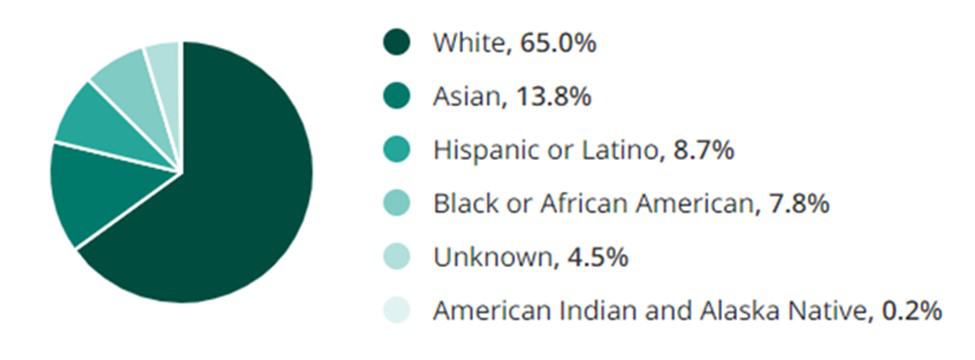Welcome to your ultimate guide to a career in consulting. Consulting stands at the crossroads of innovation, strategy, and change, guiding businesses through their most pressing challenges and toward new heights of success. In this guide, we dive deep into what it takes to build a successful consulting career – from educational requirements and areas of expertise to understanding the demographics and salary trends within the consulting industry in the United States.
Whether you’re a recent graduate eager to make your mark or a seasoned professional looking to shift into consulting, this guide is for you. With the consulting industry’s dynamic evolution, driven by digital transformation and a globalized economy, there has never been a more exciting time to join the field. Consultants play a crucial role in shaping the future of businesses across sectors, making this career path both rewarding and impactful. Let’s explore what it takes to succeed as a consultant and how you can start or advance your journey in this exhilarating field.
Educational Requirements
To kickstart a career in consulting, a solid education is your first step. Most consultant roles require at least a bachelor’s degree. Typical fields of study include business administration, economics, finance, and similar areas that prepare you for the challenges of consulting. Beyond your degree, certifications can elevate your profile. For example, becoming a Certified Management Consultant (CMC) showcases your dedication to the profession’s high standards and ethical practices.
This combination of education and certification is crucial whether you’re eyeing consultant jobs, legal nurse consultant jobs, education consultant jobs, or leasing consultant jobs. It lays the groundwork for a successful consulting career, marking you as a serious professional with the knowledge and skills to aid your clients effectively.
Areas of Expertise
The consulting field offers a wide array of specialization areas, catering to the diverse needs of businesses and organizations. Here’s a glimpse into some of the key areas:
- Strategy Consulting: Focuses on helping organizations with their overall business strategies, helping them stay ahead in competitive markets.
- Management Consulting: Aims at improving an organization’s performance through analyzing existing organizational problems and developing plans for improvement.
- IT Consulting: Specializes in technology, offering guidance on everything from IT strategy and software development to digital transformation.
- HR Consulting: Deals with human resources management, assisting companies in aligning their HR activities with their business strategies.
- Financial Advisory Consulting: Provides financial planning and risk management advice and helps make informed business and investment decisions.
Each of these areas requires specific skill sets and understandings. For instance, a financial advisory consultant might need a strong background in finance or accounting. In contrast, an IT consultant would benefit significantly from a deep knowledge of technology trends and software development. Choosing your path depends on your interests, academic background, and the type of impact you wish to have. Whether your interest lies in straightforward educational consultant jobs or the intricate world of strategy consulting, there’s a place for you in this diverse field.
Demographics in the United States
Ethnicity/Race:
The landscape of consultant jobs in the U.S. showcases a mosaic of ethnicities and races. The approximate breakdown is as follows:
- White: 65%
- Asian: 13.8%
- Hispanic or Latino: 8.7%
- Black or African American: 7.8%
- Unknown: 4.5%
- Native American and Alaska Native: 0.2%
The consulting industry strives for a workforce that mirrors the broader U.S. demographics, recognizing the richness diverse perspectives bring to problem-solving and innovation.

Gender:
Gender representation in consultant roles reflects a mix of male and female professionals:
- Male: 58.2%
- Female: 41.6%
Though relatively balanced, there are ongoing efforts to further narrow the gap, particularly in leading consulting positions.

Age:
The consulting field attracts talents across a broad age spectrum, with many professionals having an average age of over 40. This diversity in age groups enriches the consulting profession by combining the fresh, innovative ideas of younger consultants with the deep, industry-specific knowledge and experience of the more seasoned ones. It exemplifies the industry’s dynamic nature and ability to adapt and evolve with the changing business landscape.

Salary Trends
Compensation in the consulting sector can vary greatly, reflecting factors like specialization, experience, and the firm’s reputation. On average, here’s what consultants in the U.S. might expect:
- Entry-level consultants can see salaries starting from around $75,000.
- Mid-career professionals may earn between $100,000 to $150,000, depending on their area of expertise.
- Seasoned consultants, especially those in top-tier firms or with niche specializations, can command salaries north of $200,000.
These figures show the potential for lucrative earnings in the consulting field. But it’s not just about the paycheck. Consulting roles often include comprehensive benefits packages, performance bonuses, and professional development and growth opportunities. Compensation trends in the industry reflect the high-value businesses place on the insights and expertise consultants bring.
Hiring Trends
The consulting industry is experiencing a robust demand for skilled professionals. Here are the latest trends shaping hiring in this sector:
- Growth in Specialty Areas: As businesses face increasingly complex challenges, there’s a sharp uptick in demand for consultants with expertise in digital transformation, sustainability, and risk management.
- Diversity and Inclusion Efforts: Firms are placing a higher emphasis on building diverse teams. This shift seeks to reflect society’s demographics and harness diverse perspectives for more prosperous, innovative problem-solving.
- Adaptability and Continuous Learning: The fast-paced nature of business today means consultants must be agile learners capable of quickly adapting to new technologies and methodologies.
With a projected growth rate of 8% over the next five years, the outlook for consultant jobs is optimistic. This promising trend highlights the need for strategic insight and expert advice across various sectors. Firms are looking for strong analytical skills and professionals with diverse experiences and viewpoints. Consulting offers a dynamic and rewarding career path for those looking to make a mark.
Education Levels
Educational attainment plays a crucial role in career progression in the consulting industry. Here’s a breakdown of typical education levels among consultants:
- Bachelor’s Degree: This is the baseline requirement for most consulting positions. Candidates often hold degrees in business, economics, finance, or related fields.
- Master’s Degree: Many consultants further their education by pursuing a Master’s degree, such as an MBA, which can provide a competitive edge and deeper knowledge in specific areas of business.
- Certifications: Beyond formal degrees, certifications like the Certified Management Consultant (CMC) validate a consultant’s commitment to the profession’s standards and ethics.
The blend of academic knowledge and professional certifications equips consultants with the analytical and strategic thinking skills crucial for advising clients and driving business success. This emphasis on education underscores the consulting industry’s dedication to excellence and rigorous approach to solving complex business challenges.

Skills in Demand
The consulting industry values a diverse set of skills. Here’s what firms are looking for:
- Strategic Thinking: The ability to see the big picture and map out a pathway to success is crucial.
- Problem-Solving: Consultants must tackle complex issues, often in fast-paced environments, and devise effective solutions.
- Data Analysis: Analytical skills are essential for making sense of data, enabling consultants to extract insights and inform decision-making.
- Communication: Clear, concise written and verbal communication is essential for conveying ideas and influencing stakeholders.
- Project Management: Organizing and managing projects, often with tight deadlines, requires efficiency and attention to detail.
- Adaptability: Quickly adapting to new information, environments, and technologies is invaluable.
Moreover, with digital transformation reshaping industries, proficiency in digital tools and platforms is increasingly relevant. As businesses navigate challenges and opportunities presented by technology and globalization, agile, tech-savvy, and forward-thinking consultants stand at the forefront, ready to lead their clients toward success.
Current & Future Consultant Jobs Outlook
The consulting profession is navigating an era of unprecedented change driven by digital innovation, globalization, and an increasing focus on sustainability. Here’s what the future looks like for those in consultant jobs:
- Growing Demand: The need for consulting services continues to rise. Businesses seek strategic advice to thrive in an ever-evolving marketplace.
- Shift Towards Digital: Digital transformation initiatives create new opportunities for consultants proficient in technology and digital strategies.
- Emphasis on Sustainability: With a broader global focus on environmental and social issues, consultants who can guide companies in sustainable practices are in high demand.
- Expanding Global Markets: Globalization opens up opportunities for consultants to work on international projects and gain exposure to diverse market dynamics.
These trends point to a vibrant future for professionals in the consulting industry. As businesses face further complexities, the insights and expertise provided by consultants will remain invaluable. For those looking to forge a career in this dynamic field, staying adaptable, continuously learning, and keeping an eye on emerging trends will be vital to success.
FAQ’s
How do I get started in consulting?
To begin a consulting career, focus on obtaining relevant education, such as a bachelor’s degree in business or finance. Gaining certifications like the Certified Management Consultant (CMC) can also be beneficial. Additionally, consider internships or entry-level positions in consulting firms to gain experience.
Do I need an MBA to succeed in consulting?
While an MBA is not a strict requirement, it can provide a competitive edge and deeper business insights. Many consultants pursue MBAs to advance their careers, especially in management consulting.
Can I specialize in more than one area of consulting?
Yes, consultants often specialize in more than one area. However, developing a solid foundation in one area is crucial before expanding to others. This ensures depth of knowledge and expertise.
Is consulting a good career choice for work-life balance?
Consulting can be demanding, with tight deadlines and client-driven schedules. However, many firms recognize work-life balance’s importance and offer flexible working arrangements.
How important are soft skills in consulting?
Soft skills like communication, problem-solving, and adaptability are critical in consulting. They enable consultants to effectively engage with clients, understand their needs, and deliver tailored solutions.
Additional Resources
To deepen your understanding and skills in the consulting profession, consider the following invaluable resources:
- Career Development Resources-Education & Careers: A comprehensive guide for career development, including job search strategies and networking tips.
- Consulting Magazine: An exclusive magazine and website for the consulting industry, offering the latest industry news and events.
These resources can provide a wealth of information and support as you pursue or advance in your consulting career. They offer insights into the latest industry trends, professional development opportunities, and practical advice to help you succeed in the dynamic consulting field.
Conclusion
The consulting field offers an exciting career path filled with opportunities for growth, innovation, and making a genuine impact on businesses and society. You can thrive in this dynamic industry with the proper education, skills, and adaptability. The demand for consultants across various sectors is rising, reflecting businesses’ needs for strategic insights in an ever-changing global landscape.
As you explore job search websites and pursue or advance in your consulting career, remember you’re not alone. Join Diversity Employment to connect with a network of professionals, access job listings, post your resume, and gain valuable resources. Our platform is designed to support your journey every step of the way, from providing tips on showcasing diversity in your resume to insights on navigating the complexities of the consulting field. Sign up today and take the next step toward your dream consulting job.




